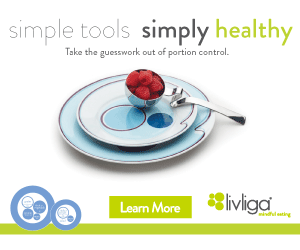What I like about this list is that these are all activities that are enjoyable and possible. We can focus on incorporating these more in our life to good affect and it will be fun to try!
Nature walks can
make you healthier and happier by driving out obsessive, negative
thoughts. A Stanford University study found that strolling in a natural
setting decreases activity in the subgenual prefrontal cortex, a brain
region particularly active during rumination. “It was pretty striking
that a 90-minute walk had this much of an impact,” says author Gregory
Bratman. For people with a tendency to brood, interrupting an endless
stream of negative thoughts reduces the risk for depression and other
mental illnesses. Green spaces may also make kids smarter. A separate
study of roughly 2,600 fourth-graders in Barcelona found that those with
greater exposure to nature were more attentive and experienced a 5
percent increase in working memory.
Awe-inspiring experiences can
help you live longer. Gazing out over the Grand Canyon or beholding an
artistic masterpiece can trigger positive emotions with immune-boosting,
anti-inflammatory effects that help prevent heart disease and
depression, among other chronic health issues. Researchers at the
University of California, Berkeley found that feelings of awe and wonder
are associated with lower levels of cytokines, pro-inflammatory
proteins that can stress the immune system. While negative emotions are
“reliably associated with poorer health,” the study’s authors note,
“only recently has research begun to acknowledge the important role of
positive emotions.”
A glass of wine each day could
improve heart health and blood sugar control among people with type 2
diabetes. A study in Israel suggested that if you suffer from the
condition and incorporate a moderate amount of red wine into a
heart-healthy diet, it may boost “good” cholesterol levels by 10 percent. Red varietals are also rich in beneficial compounds that
are linked to fewer symptoms of metabolic syndrome, a group of factors
that raise the risk for heart disease, diabetes, and stroke. What’s
more, a daily glass of red or white wine may improve the metabolism of
type 2 diabetics, who absorb alcohol more slowly than others. Those
patients “who drink wine in moderation can continue to do so,” says
author Meir Stampfer, “and with the knowledge that it is safe and likely
beneficial.”
Meditation may
help people stay mentally sharp. Brain bulk peaks in the early 20s and
gradually declines over time, as the brain loses weight and volume. But
brain scans taken in a UCLA study revealed that years of meditation are
associated with smaller reductions in gray matter throughout the brain.
“What we expected was to see this in just a few small regions...but what
we saw was almost the entire brain. That was a big surprise,” says
co-author Florian Kuth. By preserving brain tissue involved in memory,
decision-making, and sensory perception, the study suggests, meditation
could reduce the risk for age-related cognitive decline.
Olive oil could dramatically reduce a woman’s chances of developing breast cancer. Researchers
found that when women over 60 added a generous dose of extra-virgin
olive oil to a diet rich in fruits, vegetables, fish, nuts, and whole
grains, it cut their risk for the disease by 68 percent. Olive oil
contains powerful antioxidants,called polyphenols, study authors
explain, and deriving at least 15 percent of total calories from it
“seems to be instrumental” in staving off breast cancer.
Daily aspirin may
help prevent colon cancer. People in their 50s with at least a 10
percent risk of developing cardiovascular disease over the next decade
should take a low dose of aspirin to protect against heart attacks and
colorectal cancer, a government task force recommends. Aspirin therapy
isn’t recommended for everyone, because regular use of the drug
increases the risk for internal bleeding, says task force member Douglas
Owens, but “for people in these specific groups, the benefits outweigh
the potential harms.”
Uninterrupted sleep may
help ward off Alzheimer’s disease. A study involving some 2,500 older
people showed that, on average, subjects who slept fitfully or suffered
from sleep apnea developed mild cognitive impairment about 10 years
earlier than sound sleepers. Researchers also found a lack of deep sleep
may fuel the toxic accumulation of a sticky protein, called amyloid
beta, in the brain—a hallmark of the degenerative, memory-robbing
disease. “Sleep,” says author Bryce Mander, “appears to be a missing
piece in the Alzheimer’s puzzle.”
Source: The Week

























